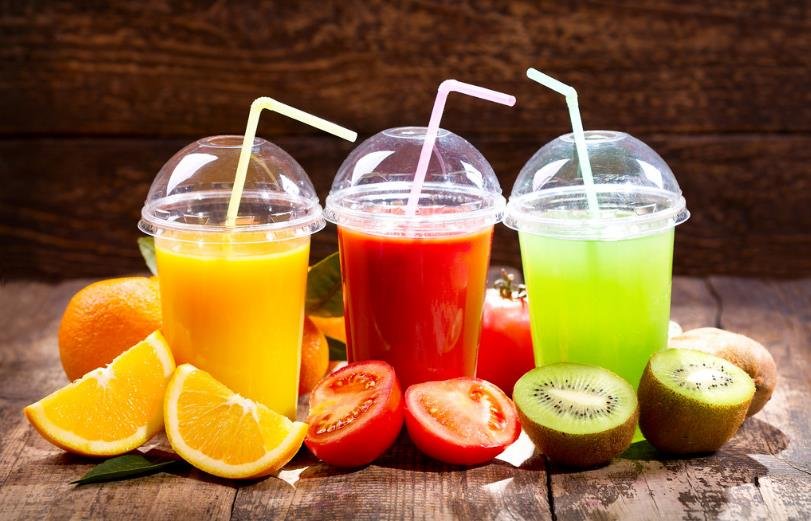Drinking 100% fruit juice may seem like a healthy way to get your daily dose of vitamins and antioxidants, but it could also be adding extra calories and sugar to your diet, leading to weight gain. This is the finding of a new analysis of 42 previous studies that examined the link between 100% fruit juice consumption and body weight in children and adults.
The analysis, published in JAMA Pediatrics on Tuesday, found that drinking one glass or more of 100% fruit juice each day was associated with a small increase in body mass index (BMI) — a measure of weight relative to height — in both children and adults. The increase was greater for younger children, under 11 years old, than for older children and adults.
The researchers estimated that each additional serving per day of 100% fruit juice was associated with a 0.03 higher BMI in children and a 0.04 higher BMI in adults. This means that drinking an extra glass of 100% fruit juice every day could lead to a weight gain of about 0.5 kilograms (1.1 pounds) over a year for a child and about 0.7 kilograms (1.5 pounds) for an adult.
The analysis did not prove a causal relationship between 100% fruit juice and weight gain, but it suggested a positive association that was consistent across different types of studies and populations. The authors said that their findings supported the public health guidance to limit the consumption of 100% fruit juice to prevent overweight and obesity.

Why 100% fruit juice can be problematic
One of the possible reasons why 100% fruit juice can contribute to weight gain is that it contains liquid calories, which are less satisfying than solid calories and can lead to overeating. A glass of 100% fruit juice can have the same amount of sugar and calories as a glass of soda, but without the fiber and other nutrients that are present in whole fruits.
For example, an 8-ounce glass of orange juice has about 110 calories and 22 grams of sugar, while an 8-ounce glass of cola has about 100 calories and 27 grams of sugar. However, eating an orange, which has about 60 calories and 12 grams of sugar, also provides 3 grams of fiber, which can help you feel full and regulate your blood sugar levels.
Another issue with 100% fruit juice is that it can be easy to consume more than the recommended serving size, especially if it is served in large containers or cups. The American Academy of Pediatrics (AAP) and the Centers for Disease Control and Prevention (CDC) advise that children younger than 1 year old should not drink any juice at all, and that older children and adults should limit their intake to no more than 8 ounces per day.
How to enjoy fruit juice in moderation
The authors of the analysis acknowledged that 100% fruit juice can provide some benefits, such as vitamin C, potassium, and antioxidants, but they said that these could also be obtained from other sources, such as whole fruits and vegetables, fortified foods, and supplements. They also said that 100% fruit juice should not be considered as a substitute for whole fruits and vegetables, which have more fiber, phytochemicals, and other health-promoting components.
If you do want to drink 100% fruit juice, here are some tips to enjoy it in moderation and avoid excess calories and sugar:
- Choose 100% fruit juice that has no added sugar, and check the nutrition label for the serving size and the sugar content.
- Dilute 100% fruit juice with water or sparkling water to reduce the calories and sugar per glass, and add some ice cubes or fresh fruit slices for extra flavor and freshness.
- Drink 100% fruit juice only occasionally, and not as a daily habit or a thirst quencher. Opt for water, unsweetened tea, or low-fat milk as your main beverages.
- Eat whole fruits and vegetables as much as possible, and aim for at least five servings per day. Choose a variety of colors, shapes, and textures to get the most benefits and enjoyment.
